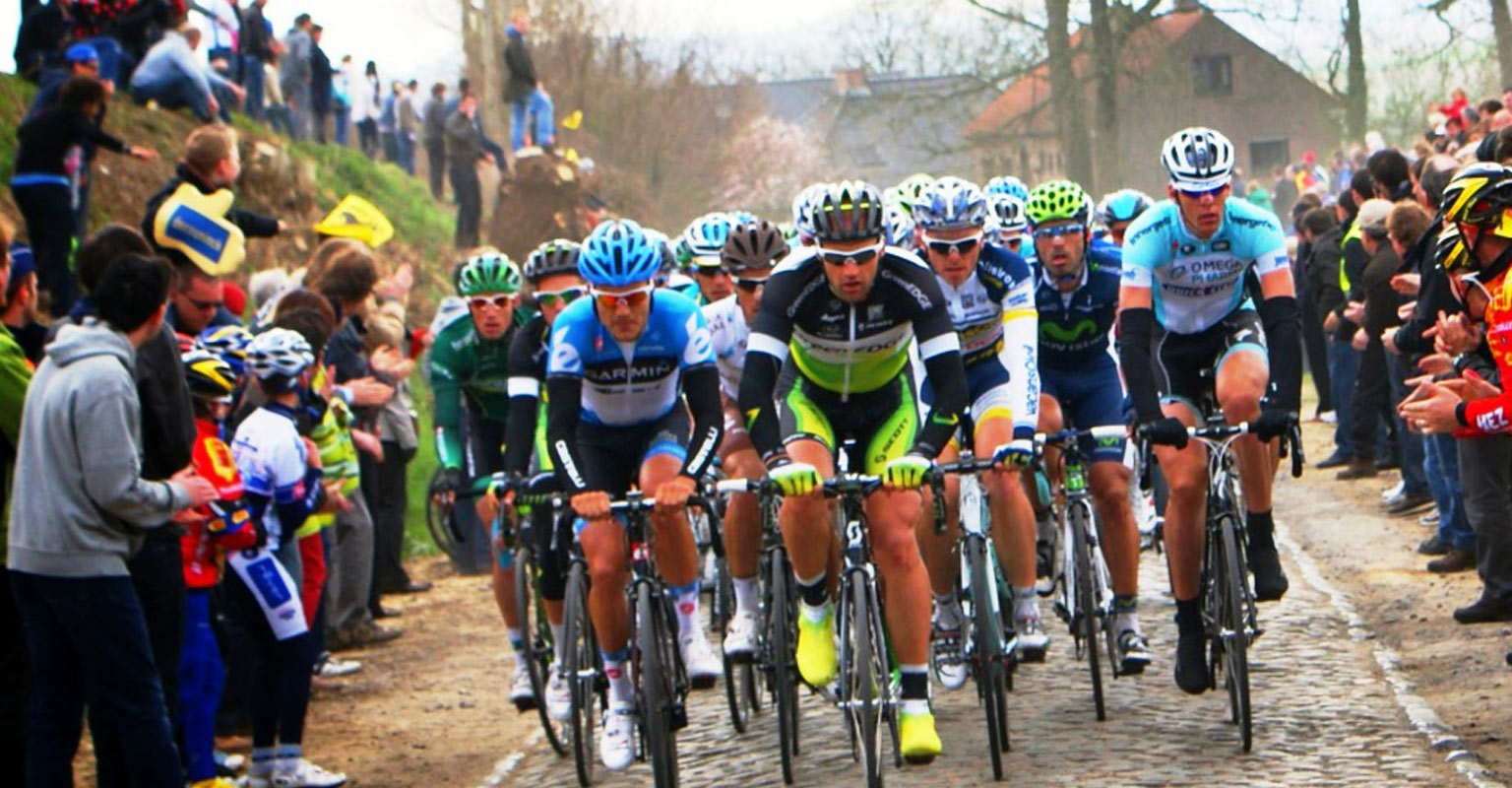Cycling’s Immoral Worship: Perpetuating the Problem

In Barry Levinson’s 1990’s crime drama series Homicide, there was a terrifically sleazy character named Luther Mahoney, a king pin that controlled the drug trade in the worst of Baltimore’s inner city neighborhoods. Every few episodes, Luther would crawl out from the underbelly of the city, his shiny black hair pulled back exposing a smooth, unfurled forehead, perfectly manicured finger nails accentuated his boney fingers as he pointed at and lectured the detectives on their naivety. In his world, those attempting to arrest him failed to see that, in effect, his dirty money was being put to good use providing social and educational benefits for the underprivileged children through his funding of after-school programs, social programs, basketball courts and athletic fields. It was almost believable. But regardless of the physical and social improvements, this scenario presents a huge moral dilemma- can a person who breaks the law, who infects society with a disease for a profit, make restitution or rationalize the crime simply by performing some good deed with money profited from the cheating? Does this payoff rectify the immoral act?
Certainly infecting neighborhoods with crack cocaine and heroin is far greater a social problem than cheating in cycling, but there is a parallel. Just ask George Hincapie how he amassed his $40 million fortune. And what is he trying to do now? Lay claim that he only wants to help the sport, the very sport he waltzed through with drugs rippling through his veins, smiling while his eyes hid the truth behind his Oakleys, accepting the adoration from fans, attention from the media, millions of dollars and a career that has been left intact, if not further solidified by finally coming clean. As for Luther Mahoney, justice was finally served when he was gunned down on the streets of Baltimore. It’s no secret how Lance Armstrong hid behind the yellow Livestrong banner and cancer survivor label to detract from the cheating and doping, a façade that he held so staunchly to that he slithered down an immoral path lined with poor judgment, a despicable lack of humanity and a legacy now defined by defamation, lies, character assassination and lawsuits, all while pounding his chest and questioning our own moral fortitude and how dare we accuse a man of cheating when he helps millions of sick people and has survived cancer.
The list of riders that doped that was revealed as an integral part of the federal investigation into Armstrong, that we know of so far, reads like an All-Star list of U.S cycling, our country’s stars finally outed as cheats, liars, dopers. In anticipation of finally seeing these cheaters penalized, one wondered what type of suspensions- or deals- would be levied. When a person breaks the law, our governance says there should be a penalty. Typically, for most offenses, it’s a trial, and if guilty, a sentence. Yet, when a person breaks the law repeatedly and profits glamorously from it, the moral line seems to become ambiguous, as if suddenly the story now becomes a bit of a fairy tale and there is some acceptance or admiration for the cheater’s ability to evade prosecution and continue to succeed, even under the sniffing noses of enforcement. The prosecutors are accused of a witch hunt, insulted for their staunch view of the ethics they took an oath to uphold. There develops a sense of a “good for you attitude, you got away with it.” And with this, it seems, there is a myriad of excuses that creep into a sympathetic ear, suddenly a dribbling of reasonable doubt muttered through the trite spoken line of “I had no choice,” and “everyone was doing it, I had to cheat to keep up.” It may well be true that it was necessary to cheat to be competitive, but if you play a cheaters game, you need to play by the cheaters rules. And somewhere, somehow, those rules have been rewritten. And that makes me really angry.
Juliet Macur’s book “Cycle of Lies” delves deep into the rotten core of Tailwind Sports and the U.S. Postal Team and its systematic cheating, bullying, lying, deceit and pulls back the curtain to expose Hincapie; Vaughters; Danielson; Leipheimer; Zabriskie; VandeVelde; Hamilton; Landis. Each one of these riders had moments where they stood on the top step of a podium, fully aware of the methods they chose to get them there, and not one of them stepped forward and said this is bad for the sport. They accepted the rewards and continued to cheat. In reading about the struggles of their decision to dope, I do not feel sorry for Vaughters, or Zabriskie, as much as Macur tried- unconvinced herself-to relay a sense of humanity and compassion for the moral dilemma they faced while crying like children in the fetal position. If you’re going to become a cheater, at least be a man about it and roll up your sleeve, take your needle, and be done with it. You gave up the right to act like a baby once you said yes to the cheater’s rules. So after admissions of guilt, the question then becomes, doesn’t everyone deserve a second chance? Shouldn’t there be an opportunity, after a penalty or admitted guilt, to then choose a higher moral path, admit to the cheating and be an example for a cleaner sport, a cleaner society, whatever. My answer to that is yes. The problem here, with all of these riders, and others, is they passed on that second chance. They were cheaters, they knew the problem, they perpetuated the problem, they built a bigger lie, they constructed larger myths, continued to grace the pages of magazines, newspapers, accept higher paychecks, step onto podiums and parade themselves around like true champions. When they had the chance- knowing the deep rooted cheating that was being exposed, like in Operation Puerto in 2006- and they all chose to continue to lie, or stay silent. In many ways, I believe the sole purpose of Floyd Landis ever becoming a cyclist was to expose the greatest fraud in sporting history and bring the sport to the point we are now at. Yet, it was clearly never his objective. It never is for a liar and a cheater and a doper. Because what they do, and who they are, is rooted in deceit, their very behavior is constructed on perpetuating the myth they’ve falsely created for themselves and presented to the public. And some will say who can blame them for crafting their characters and cashing the paychecks and living the myth, enraptured by the adulation and adoration of millions?
Perhaps we can’t, if you accept that type of behavior. But every time they stuck another needle in their arm, popped another pill or stuck a testosterone patch onto their scrotums, they forfeited their second chance. And their third. And fourth and so on. Not one had the courage to admit their ways when first confronted. Many can praise Landis for coming clean, but what if Armstrong wasn’t so pig headed and actually gave him a job? What if he simply hired Landis to shut him up? While the Luther Mahoney’s of the world are drug dealers, they are business men, and they know how to buy silence, territory, product and protection. As smart as many say Armstrong is, clearly he was ill advised and not a very good businessman. But the issue goes far beyond Armstrong’s arrogance. It strikes at the center of one of the most polarizing issues in our society- the continued deaf, dumb and blind adoration of cheaters. Armstrong has, rightfully in my opinion, been stripped of his victories, forced to pay back millions of dollars, lost millions in sponsorship money, been banned for life and effectively is paying a huge price for the life he lived. I say he is getting what he deserves. I honestly hope he ends up destitute. The problem is, the others are not suffering the same fate. George Hincapie kept his victories, has a successful clothing company, recently opened a hotel and is wrote a book. Vaughters manages the Garmin-Sharp team, now trumpeted as a do-gooder who tows the same moral high ground he failed to see while a rider and one that took years for him to admit to, all while allowing further damage to occur. Tom Danielson wrote a book and holds training camps; Tyler Hamilton has a coaching service; Leipheimer hosts a popular Gran Fondo every year that has the support of some of the industry’s biggest companies. Zabriskie keeps his National titles. Vandevelde has his mansion in Chicago. So where is the message? The penalty? These guys continue to say they want to do “good” for the sport, but failed to stop the damage they did to it while engineering their fraudulent careers. Only when legally forced to speak, with an offer of a 6-month suspension during the winter as the penalty, did they actually speak the truth. And long after they had made their money.
Were their others who cheated? Yes. Does that justify cheating? In my opinion no. You are confronted with a choice. You weigh the options. You make a decision. And you continue to make that decision, whatever it is, with the line of right and wrong still the same. Should we continue to herald them as heroes of the sport? Are they suddenly exonerated from their past regressions, allowed to keep their fortunes and reputations as we continue to talk about their successes, and herald all the “good” they are doing for the sport now? Would I trust my nephew in the hands of Hincapie and his development team? Regardless of the efforts he is making now, he waved off his chance to do the right thing long ago in some filthy apartment in Girona. It would be hard not to tell the young man that the coach he has was a cheater, and all the success and fame he accomplished was through cheating. Why is this so hard to comprehend? What type of coaching plan could one honestly receive from Tyler Hamilton, regardless of what he knows, especially when there are more competent coaches out there? His career as a cyclist will forever be defined by one thing-cheating. It’s here that I ask the question why do we, as a society, continue to praise those who have crossed that moral line- repeatedly- and accept them in a sport they played such a large part in devaluing, to not have to suffer the consequences of their wrongful action? Some will say they have suffered enough, to give them a break. I say they all should be suffering the same fate as Armstrong. As a sport culture, we are still infected with the personalities that drove cycling so deep into the abyss that we continue to claim we are cleaning ourselves out of. Alexander Vinokourov is managing a team? Does one need to be reminded of the harsh words he had for the sport and cyclists in general when he was caught and suspended? Viatcheslov Ekimov? Bjarne Riis? There are far greater people out there that can contribute far more to the sport than these men, to name a few.
And the industry itself is not doing enough to take a stance against the poison that continues to plague cycling and make it a joke. Yes, other sports are also contaminated with doping, but I do not work in those sports, so I choose to not devote my time to them. Rapha Clothing has recently produced a jersey to mark the ten years since the death of Marco Pantani. What is so disturbing here is, apparently, while trying to justify the production of this piece, Rapha CEO Simon Mottram either forgot what he read or failed to read altogether Matt Rendell’s thorough and decisive book on Pantani. Pantani’s story doesn’t detail the struggles of life we find so alluring in cycling, as Mottram claims. It chronicles a very calculated experiment that drove the boundaries of human performance into a ridiculous stratosphere. And this is what we are supposed to relate to? Mottram can spin it however he wishes- he is trying to sell product after all- but the bottom line is, the reason Pantani was so great going uphill was because he was doped. To the gills. Since he was in his late teens. It brought him fame, fortune and glory. And brought him shame, humiliation, addiction and death. Why honor someone who lived this type of life? Why are we so enamored with, and so forgiving of, the Luther Mahoney’s of the underworld and yet we ignore and ridicule, those who walk a respectful, moral path, making their decisions based on what is consciously and objectively the right choice? The acceptance of these cheaters is only perpetuating a long standing theme- these figures continue to have a presence in the sport for reasons that they shouldn’t. Cyclingnews recently wrote a piece on banned rider Ricardo Ricco. Why are we to really care that this man, for one, is still out there, and that he recently bought drugs? Bicycling magazine recently did a photo shoot at Hincapie’s hotel. Editor Bill Strickland posted a photo on twitter of Hincapie’s Tour de France jersey collection hanging in the hotel and tweeted that he “believes this is a good thing.” How is this good? For who? George? The sport? His $40 million fortune? If we do not penalize those who have corrupted the sport, how do we expect it to change? If we continue to support these cheaters aren’t we exonerating them of their past regressions? Why are we ignoring the severity of what they did, and the enormity of what they gained? Why are we afraid to stand up to these cheaters, stop making them heroes, and simply believe in morality as a heroic trait, once and for all? You may not the like the answer, but I’ll tell you why. Because for those who believed in the myth, you can’t admit that you were taken for a ride.
We rationalize the truth because we are afraid to admit that someone we idolize has faults or is not the true hero we set them up to be in our dreams. We cheered for them, shared their struggles, were sad when they failed and happy when they succeeded. But the sad part is everyone has faults. Everyone fails, everyone succeeds. But not everyone crosses the line between right and wrong. Not everyone is a cheater. So the debate is not about doping per se, but about moral fortitude. And I’m starting to believe either you have it or you don’t. If admission is the first step recovery, maybe we need to do a better job of introspective thinking and look at our own faults and limitations and that may help us get to a better place- a cleaner place, and a place that simply says no to lying, cheating, doping. None of us are without fault, and I admit mine are many. But I take responsibility for my decisions and actions, and I make those decisions based on a moral compass and personal integrity that is a choice. I was raised on honesty and hard work, I live the working man’s life as a working man’s son, a man who grew up with nothing, made an honest living and passed that on to me. It was ingrained in me as a child. I once put a small plastic bingo coin in a gumball machine and actually got the gumball. I was surprised it worked. My elation lasted long enough for my first bite to crack the shell and taste the sweetness, before I was overcome with guilt and spit it out. I walked inside the pharmacy and handed the store owner the nickel I owed him. I waited anxiously for my father to come home from work that night, and told him what I had done. He placed his hand on my shoulder and told me I had done the right thing. And he meant paying the owner the nickel, not getting the gumball. None of these cheaters ever paid the pharmacy store owner back. They stole the whole god dammed gumball machine and sold each gumball to us at 10 times the profit. None of them deserve that pat on the shoulder. And I believe if you support them still, you don’t deserve that pat either. I just hope you enjoy your expensive gumball.

